Photography and Grief
Photography and grief is one of the main sections on my site. Recently a reader agreed to an interview about how contemplative photography helped him deal with the loss of his wife. In his situation his wife died slowly from illness. Photography became helpful to him long before his wife actually passed away.
We will begin with the interview to give you the story behind the photos. Then at the bottom of the page you will find a YouTube video containing a presentation of Brian's photography. Enjoy the interview, and I hope that you find it helpful for your own experience.
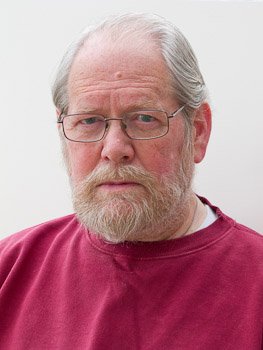
Photography and Grief
What were you going through at the time you did the photography?
My wife experienced severe illnesses throughout our forty five years of married life that increased in their severity as time passed. Throughout the major, prolonged period of my wife's failing health and subsequent dying, some twenty years, my path was one of frequent nursing, dealing with her illnesses and their various manifestations, which often entailed prolonged stays in hospital, all of which was just unbearable for me to watch. Whereas, she was a very strong person and able to withstand great pain this capacity diminished over the years. The deterioration of her health accelerated and intensified until, after five strokes, she was paralysed and could not speak, though her mental capacity was largely unimpaired. Finally, in the last two and a half years of her life, the progress of her failing health culminated in necessitating twenty four hour nursing care in a nursing home.
I was called on to do all manner of personal care and nursing over and above that provided for by all kinds of medical professionals. That was in addition to all my usual domestic duties (I had retired by then). The level of nursing available in our home was often very limited. Things went dreadfully wrong from time to time and it then fell to me to sort things out as best I may.
My wife was very heavy and we had no family to call on for help. In consequence I was often injured. I had also reached a point of continual mental, physical, emotional and spiritual exhaustion. Many carers often reach extreme levels of exhaustion when dealing with very ill relatives under similar circumstances. Unfortunately, this is an all too common experience for carers.
I was usually able to get a one week holiday break each year when my wife went into respite care. That's where the photography started to come in. However, everything was usually clouded over by the intense experience of looking after my wife, even on holiday.
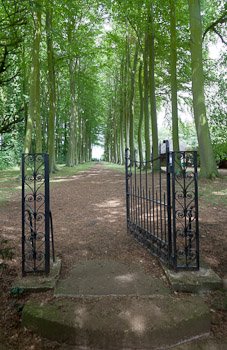
What prompted you to do the photography?
It wasn't so much a question of being prompted to do anything as such, that might have involved me in a rational decision, but rather an intuitive/spontaneous response that arose out of total immersion in a seemingly relentless situation in which my resources were often over stretched.
The actual event that triggered my unconscious involvement in contemplative photography was an inspired wish to visit Exeter Cathedral whilst on a respite holiday, without any expectations. I had never been there and I just thought, let's just do it and simply enjoy what I might see. Call it synchronicity if you will.
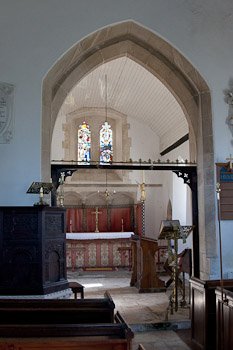
Although I often go into churches and cathedrals, through an interest in medieval architecture and a real need for peace and quiet in my inner being, this was completely different. I entered the cathedral and chatted with the lady at the visitors reception desk, turned and looked up to see this awesome, overwhelmingly beautiful building. I was just stunned by its size and the magnificent architecture and, there and then, I decided that I must return with a camera. That was a kind of turning point.
My wife's condition worsened and my cathedral/church photography visits were usually accompanied by being immersed in the emotions of helpless despair and grief. I wanted to pray but had no idea how to pray or what to pray about, or for; nothing that I could think of seemed to be in any way appropriate. Though I had long known that my wife was dying I was continually amazed at how strong she was. So, the photography always involved a spontaneous visit to the Lady Chapel, there usually was one in each church or cathedral that I visited, where I would light a candle to offer the situation to, to ... I don't know what; as much to honour my wife's faith, I suppose. She was a committed Anglican and I am a Buddhist. I saw and felt no paradox in that at any time during those visits or since.
The photography took on a meditative quality as time elapsed throughout those visits.
How do you feel the photography helped you get through that time in your life? How did the photography change your response to a very difficult situation in your life?
I always experience a strong sense of awe at what medieval masons did in building those ancient places of worship. I felt that I wanted to get a grasp of their vision, inspiration and creativity through my photography. There was always a feeling of enormous respect for their work. Through the camera lens I could not fail to be amazed by their skill; why did they do what they did and more often than not, how did they do it? However, this was an experience with a particular focus that could equally have applied to other subjects.
My curiosity was aroused and this always affected my state of mind no matter how depressed I might initially have felt. So that there was kind of transformation in my awareness of grief. Not so much a diversion from that strong emotional state but rather a change in its perspective.
There was often a sense of inner peace in spite of one's deep sadness. The stonework of those ancient buildings just breathes centuries of worship and, without being fanciful, that had a definite influence on my state of mind and the manner in which I tackled each facet of my photography. They really are awesome buildings. And, I was frequently completely on my own during each visit; a very powerful experience in itself!
Occasionally, on particularly bad days, spontaneous meetings with cathedral staff or other visitors was very supportive; indeed, I recall two separate occasions, at different cathedrals, when the visitors' chaplain was both kindly and practical. Synchronicity, again!
Funny things happened too, from time to time. Such as, the cathedral ginger cat lying on the high alter who was rather grumpy at being photographed. Also, losing my reading glasses in one cathedral that was just closing. Looking for them in such a large building in almost total darkness was, well, just weird (I did find them). Oh, I burnt my fingers with a candle in one cathedral. The least said about that the better!
Be prepared for the unpredictable. Sort of, Zen in the Art of ... Whatever.

What suggestions would you have for others who are going through similar situations and looking to use photography to help?
I still photograph churches and cathedrals now that I am on my own. There is one favourite small church that is always open, not too far from my home, that is in a tiny hamlet. It is just so very peaceful there. I go there when things get too much and I want to be on my own. I just sit and absorb the deep peace of that ancient building, without thinking or praying, just emptying my mind and being there in all that is.
Equally, I also visit a large national woodland park with my camera when the same meditative state also applies, as it could well do so in photographing flowers, for instance. Large trees do have a cathedral like quality. I am now trying to extend that experience through more general landscape photography.
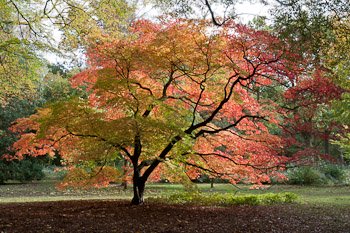
The grief continues, and I do get caught out unawares from time to time; some pieces of music are just devastating in their effect and leave me in tears. However, I have been told, usually by elderly ladies, that the first year is the worst, followed by a significant change at the second year anniversary. And, that the eighth year will see a real lessening of the pain. But my advice is not to let anyone tell you that 'you should be over it all by now'. Honour your own integrity in the process of your own grief - we are all uniquely, different from one another.
Also, definitely seek out grief counselling. Grief can precipitate all kinds of issues that have not been dealt with over the years. This is certainly true for me. Childhood issues that have remained unacknowledged and therefore unresolved, perhaps, or traumatic deaths other than one's partner or close friends and relatives, that have been steadfastly pushed into the background of our consciousness, tend to demand attention and resolution, especially so at times of severe stress. This in itself can often worsen one's present pain and confusion with the more immediate trauma. Wise counselling can greatly aid the very necessary healing process.
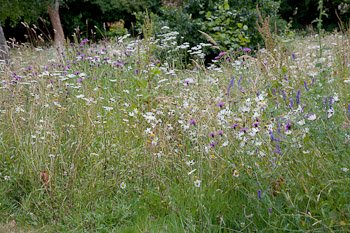
When my wife was dying she was in great distress at how prolonged her suffering had become and desperately wanted to die but didn't know how to. The local church pastoral care team vicar, who visited the care home regularly, found the following quotation for her,
| 'After immense activity, one passes into a phase where passivity is the only way. I pray that you may be finding this passivity as the way in which the soul serves God, not by doing this or that, but by simply receiving the great stream of His love and compassion.' |
Michael Ramsey, Archbishop
I like to think that we both received a measure of solace from this quotation.
Similarly, a friend, who knew of the struggle that I was having, emailed me the following quotation that I keep by me,
| 'Give sorrow words; the grief that does not speak Whispers the o'er-fraught heart, and bids it break.' |
William Shakespeare: Macbeth(Malcolm; Act 4, Scene 3)
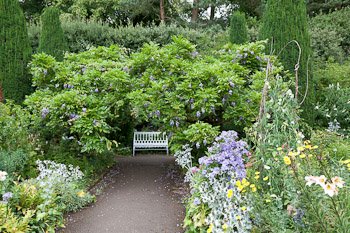
Photography and Grief
This is the video that Brian put together of his cathedral photos.
Related Articles
Return from Photography and Grief to Journey-through-Grief home